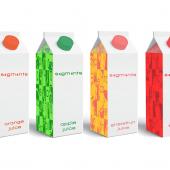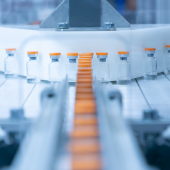Measuring circularity in retailing with Circol-UP
GS1 Italy photographs the principles of circularity in the processes of eight retail leaders.

The analysis promoted by GS1 Italy highlights the points of strength, barriers and improvement opportunities for promoting the circularity culture in business. The “Stato dell’arte dell’economia circolare nel largo consumo italiano” (State of the art of the circular economy in mass retailing) research involved a number of the major retailers operating in the market: Bennet, Conad, Decathlon, Despar Italia, D.it - Distribuzione Italiana, Esselunga, Metro and Realco, interviewed by GS1 Italy, in ECR, in collaboration with the Sant’Anna Institute of Management in Pisa. The extensive research can be downloaded from the site.

A summary of the data
The sample chosen as representing the retail food market and non-food market adopted Circol-UP and assigned the results obtained to researchers who analysed the data and found that the retail industry obtained an average circularity performance of 45%, standing not far under the overall 53% average of the other sectors analysed, that is, food & beverage and home & personal care. Circol-UP is a tool set up by GS1 Italy for measuring circularity performance, both overall and with relation to every phase of products’ life-cycle and has made it possible to see that even though many retailers have set up circularity paths, the variability between performances is very high: 25% of distribution chains have a circularity performance of between 25% and 34%, while another 25% stand above 55% and arrives at 70%. In general, the management of waste and distribution are the two phases in which circularity is most applied, standing at around 55-60%.
Production stands, instead, at a lower value of 40%, becoming the ideal ground on which the greatest opportunities for improvement emerge, especially in the presence of a full involvement of the entire supply chain.
GS1 in brief
The non-profit organisation GS1 develops the standards most used in the world for communication between enterprises. In Italy, over 40 thousand enterprises are joined together, in all key sectors. GS1’s mission to bring visibility, efficiency and sustainability to the supply chain began in 1973 with the revolutionary introduction of bar codes, judged by the BBC as one of the “50 things that have made the economy global”. Starting from the bar code, GS1 Italy today provides a global language for digital transformation and Interno 1, its new concept centre, in which innovation is at the fore.



















